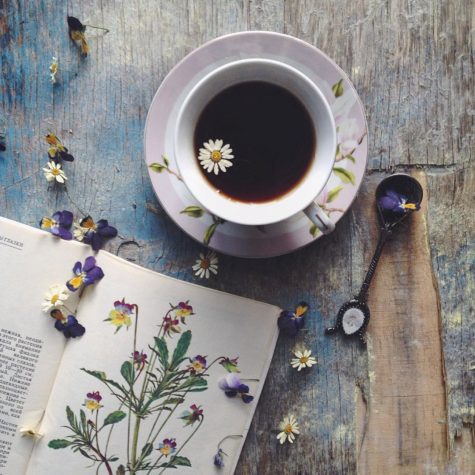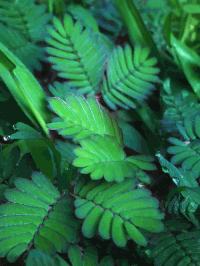A to Z Herbal Teas
To prepare herbal tea, use approximately one to three teaspoons of herb per cup of boiling water. Boil water but do not use an aluminum kettle. Pour water into a mug or pot leaving herbs to steep for at least five minutes, but don’t leave for longer than ten minutes or the tea may become bitter. For stronger tea, use more herb rather than steeping the tea for a longer time.
Store herbal tea in amber colored or opaque jars, never in clear glass jars. The potency of the herb may be destroyed by light. Mild teas can be used daily over long periods of time with no ill effects.
- Anise:
For treating coughs, bronchitis and a stuffy nose, good breath freshener, digestive aid and relieves upset stomach and flatulence, treatment for colic. Relieves the discomfort of menopause. Promotes milk production in nursing mothers. Sedative.
- Basil:
Calming the nerves, settling the stomach, and easing cramps and good for the bladder. Basil possesses some great healing powers due to its antibacterial and anti-inflammatory compounds.
- Caraway:
Mild stimulant for digestion. Caraway tea and infusions are best for treating intestinal parasites, urinary tract infections, coughs, colds, bronchitis, and fever. They also help in boosting immunity.
- Catnip (flavor with mint):
Peace. Used to treat colds and insomnia. Lowers fevers, dries up postnasal drip, gets rid of bad headaches and relieves sore aching bones due to colds and flu.
- Chamomile:
Relaxation. Calming. Great for digestion, fevers, burns, anti-inflammatory for wounds, and sedative for nervous disorders. Relieves stomachaches and diarrhea in infants and children (always use in diluted form). Gentle sleep inducer. Makes an excellent insect repellent, simply by splashing some tea on face, arms and feet.
- Cayenne:
Excellent flu fighter. Promotes fast recovery, stops internal and external bleeding, said to prevent heart attacks and also helps with depression and headaches.
- Cinnamon:
Digestive aid. Used for diarrhea, dysentery or general indigestion. Drinking cinnamon tea can help control the levels of bad cholesterol in the blood and regulate blood sugar. Consuming cinnamon on a regular basis improves digestion and eliminates gas.
- Clove:
An analgesic helping prevent disease and infection. Clove is used for upset stomach and as an expectorant. Expectorants make it easier to cough up phlegm. Clove oil is used for diarrhea, hernia, and bad breath.
- Comfrey:
Slows bleeding, aids colds, eases burns. As a tea may be applied to bites, sores, rashes, broken bones, and cuts. Although comfrey tea may offer medicinal benefits, the internal use of comfrey tea has raised considerable controversy. Taking this herb internally may cause liver damage. Talk to your doctor before taking any form of comfrey, including comfrey tea, internally.
- Dandelion:
Ground root can be used as a coffee substitute. A tonic and a relief for common stomach problems. Use a handful of flower tops to 1 pint of boiling water.
- Fennel:
Employed as an appetite suppressant and digestive aid. Weak solution can help babies with gas. Fennel may also be used in combination with other herbal remedies to modify the side effects of herbal formulas used as laxatives, or other treatments for digestive problems.
- Ginger:
Coughs and Colds. Good for cramps, to stimulate the digestive organs, migraines and nausea, external stiffness. For pain you can also soak cloths in ginger tea and apply them directly to the painful areas. A good healing tea is made from a pinch of peppermint, a pinch of ginger and either a pinch of clove powder or 2 bruised cloves, add 1 cup of hot water and steep.
- Ginseng:
Stimulant, tonic, an agent for prolonged life. Also a mild pain killer, and improves blood circulation. Reported to successfully treat asthma, bronchitis, cancer, flatulence, diabetes, weakness, fever, coughs and heartburn, and a mild stimulant. Relieves stress and moderate heart disease.
- Hibiscus:
Health benefits include relief from high blood pressure and high cholesterol, as well as digestive, immune system, and inflammatory problems. It helps to cure liver disease and reduces the risk of cancer. It can also speed up the metabolism and help in healthy, gradual weight loss.
- Lemon:
Sweetens breath. Antiseptic, antibacterial and hypotensive. For chills and sore throat, the juice of a lemon mixed in a glass of honey and warm water. Stimulates the digestive system.
- Licorice Root:
Commonly used to soothe upset stomach and heartburn. Tea made from licorice liquid extracts may also be an effective treatment for stomach ulcers. The early Egyptians loved licorice root. They used it in tea as a cure-all concoction. Licorice was later imported to China where it became an important herb in Chinese medicinal tradition.
- Mint, Spearmint, Peppermint:
Aids upset stomachs, flu, and can be used to ease hiccups. Used instead of aspirin, particularly for premenstrual headaches. Aids the respiratory and circulatory systems. An anti-inflammatory and an antiseptic. Ideal for treating indigestion,, flatulence, varicose veins, migraine, skin irritations, rheumatism, toothache, and general fatigue.
- Nettle:
Use gloves to handle so as to avoid getting pricked. High in vitamin C and iron and can ease asthma and up your energy levels. Improves the skin and kidney health, boosts digestion and immune system, gives relief from pain and reduces inflammation. It also fights osteoporosis.
- Parsley:
One of the biggest parsley tea benefits is its assistance in the treatment of diseases such as arthritis and rheumatism. A treatment for cramps, it contains apiol, a constituent of female sex hormone called estrogen. It helps in bringing regularity in menstrual cycles. Caution: Parsley tea should not be given to pregnant women as it acts as a uterus stimulant.
- Red Clover Tops:
Powerful antioxidant, and assists with menopausal hot flashes. Treats estrogen imbalances, lowers cholesterol levels, stimulates urination, boosts circulation, strengthens bones, protects the immune system, reduces hypertension, and protects the cardiovascular system.
- Rose Hips:
High in vitamin C. The top benefits of Rosehip Tea include reducing inflammation, lowering your risk of heart disease, fighting cancer, detoxifying the body, strengthening the immune system, protecting the skin, easing chronic pain and optimizing the digestive system.
- Rosemary:
Improves memory. Promotes healing of wounds, acts as an antiseptic, and can be a mild stimulant. Good for treating flu, stress, and headaches or body aches. Mental and physical booster.
- Sage (sweetened with honey):
Can be used to aid digestion, including loss of appetite, gas, stomach pain, diarrhea, bloating, and heartburn. It is also used for reducing overproduction of perspiration and saliva; and for depression, memory loss, and Alzheimer’s disease.
- Thyme:
Powerful antiviral, antibiotic, and diuretic properties. It helps eliminate wastes from the body. Is used in treating whooping coughs, warts, rheumatism and acne. Useful for poor digestion, exhaustion, colds, and infections, and with honey is an effective treatment for sore throats. Also used as a fever breaker, headache reducer and to be rid of intestinal worms, and also a great insect repellent. Use both the leaves and flowers. This tea works best for headaches when taken cold.
- Turmeric:
Added to warm milk it regulates menstrual cycle. Turmeric tea’s strong anti-inflammatory properties can help ease inflammation and swelling in people with arthritis. This reduces painful symptoms.
- Valerian:
Promotes relaxation while counteracting the effects of insomnia, anxiety, nervousness, headaches, premenstrual syndrome and menstrual cramping.
- Yarrow:
A very potent healer, it intensifies the medicinal action of other herbs taken with it. Helps eliminate toxins (good for colds). Also stops arthritis symptoms such as swelling and inflammation and generally ends aching, sore muscles, stiff joints or back pain.
Rennie Luttrull: queen-annes-lace-seeds
Rosanna: Spignel aka Bald Money
Annamarie Squatrito: Fumitory
EILEEN Klinghagen: Pumpkin
Mahmudul Hasan: Celery


